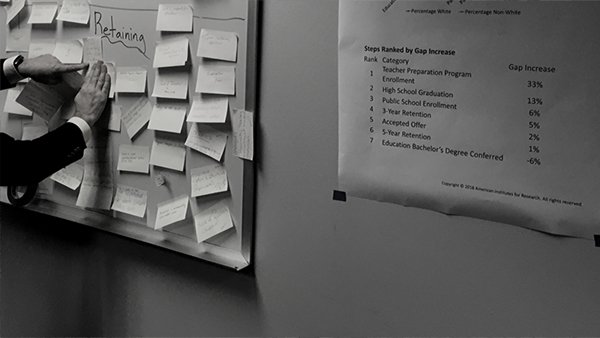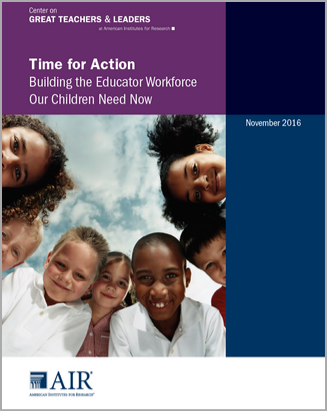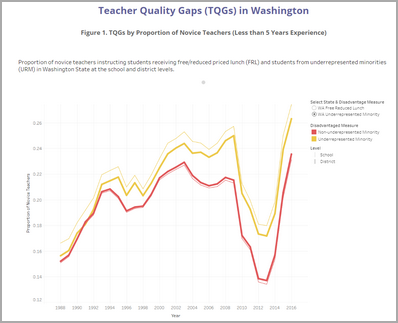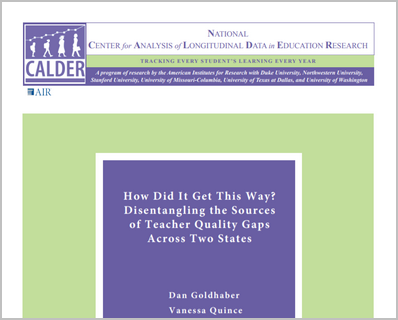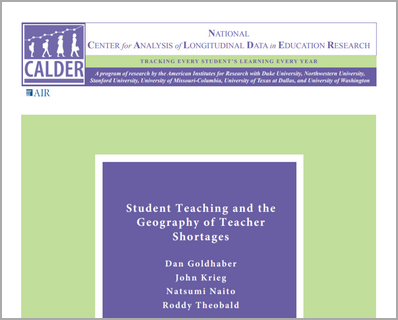Expanding Equitable Access
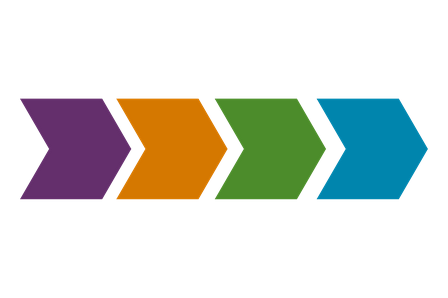
Great Teachers and Leaders in the Schools that Need Them Most
Closing achievement gaps requires a great educator in every classroom, for every student. America's current education system falls well short of this goal. Students of color, students with disabilities, and low-income students are more likely to have out-of-field, less experienced, or less effective educators.
We offer comprehensive, step-by-step planning toolkits and implementation resources for moving the needle on this crucial equity lever.
Top Resources
Decision Points: Defining, Calculating, and Addressing Gaps in Access to Effective Educators
Explore four key decision points states should consider in measuring equitable access to effective educators. Use this brief to:
- Guide and inform equitable access planning and implementation
- Explore examples of state-level initial equity planning and results reporting
Equitable Access Tools
Equitable Access Toolkit
Create a strategic, data-based plan for transforming equitable access in your state or district using our stakeholder engagement guide, root-cause analysis workbook, and data review tool.
Implementation Playbook
Implement your equitable access plans successfully using our a planning tool, communication guide, policy coherence and alignment guide, and tool for monitoring the progress of implementation.
Featured Project
Diversifying the Educator Workforce in Ohio
The Ohio Department of Education worked with a group of 40 stakeholders as well as the GTL Center and the Great Lakes Comprehensive Center to develop concrete strategies for diversifying the state's educator workforce. Using the GTL Center's Diversifying the Educator Workforce Data Tool, the group is completing a four-step process that starts with first examining the state's educator workforce data to identify diversity gaps and exploring the root causes behind those gaps.
GTL Center Equitable Access Services
We offer an evidence-based approach and a set of field-tested resources that our team has used to support equitable access efforts in states like Ohio, Mississippi, Texas, and Washington, D.C. Our services are tied to concrete, measurable outcomes for states and districts and informed by our extensive work across the United States in the last decade. We offer three service levels, which can be customized and tailored to your unique needs and starting point:

EXPLORING
Interested in better understanding equitable access? We offer short-term engagements to build your knowledge and expertise, including:
INVESTING
Ready to invest in transforming equitable access in your state? We offer packages for 5+ day, on-site workshops to support your team in:
ALL IN
Looking for a partner to guide you over the long haul? We offer long-term, on-the-ground supports for program planning, piloting, continuous improvement, and program evaluation.


